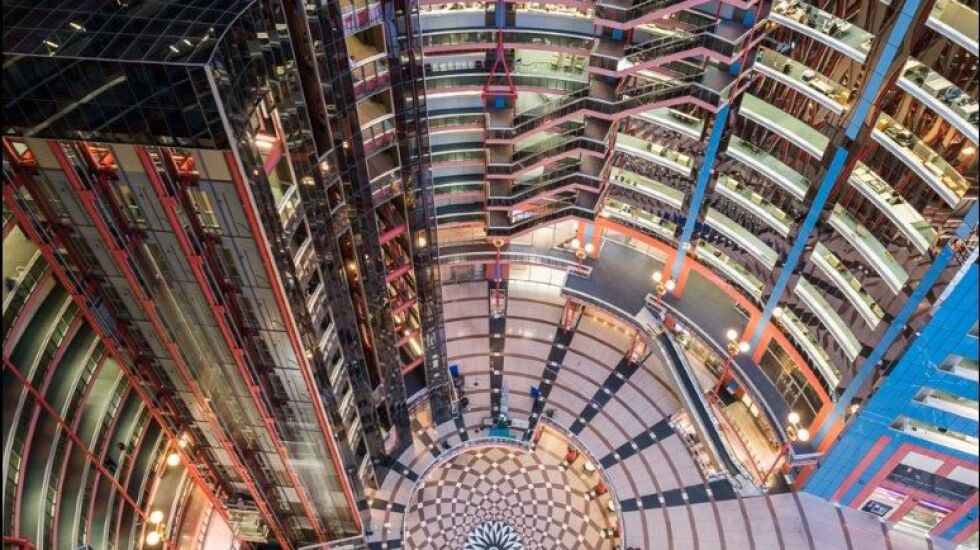
Chicago is being gobsmacked right and left by weighty, tough-to-solve issues, from the migrant crisis to city finances.
And although the city will be defined by how we — and Mayor Brandon Johnson’s administration in particular — handle these matters, they are not the only way to look at Chicago.
The fifth installment of the Chicago Architecture Biennial officially opens Wednesday (although some exhibitions opened in September), giving residents and tourists a view of the city through the complimentary lens of art and design.
Under the theme “This is a Rehearsal” and curated by the local artist collective Floating Museum, the biennial offers exhibits, events and discussions that seek to explain how art and architecture shape the global environment, be it politically, economically or architecturally.
In addition to the biennial’s usual home base at the Chicago Cultural Center, events and exhibitions will be held across the city, including the historic South Side Community Art Center, 3831 S. Michigan Ave., and SpaceShift, an artistic hub located on the bustling corner of Devon and Artesian Avenues.
We like that the great, colorful atrium of the Thompson Center has been pressed into service as exhibition space — if only because it provides final looks at this public asset itself before it’s likely changed by the building’s new owner, Google.
Among the biennial’s other standouts is Arina Dähnick’s photography show, Living with Mies, which captures the residential work of architect Mies van der Rohe and the people who currently live in those spaces. The exhibition is at the Mies-designed Edith Farnsworth House, a museum in Plano, Illinois.
If we have a quibble with the biennial, it’s that it allows Chicago to play event host but offers very little about how the city is solving or should solve global design problems.
An architecture biennial in a city that perfected tall building construction, built a renowned parks and boulevard system and gave the world the Chicago bungalow should have something to say about how to house migrants in well-designed and economically-built residences, for instance.
And with city centers across the planet dealing with how to reuse downtown office buildings left vacant by shifting work patterns caused by the pandemic, the biennial could have been the perfect means to suggest solutions.
(One last complaint: Biennial organizers should really consider shifting the event to warm weather months. And the biennial’s clumsy website needs a re-do.)
That said, the biennial — a free event which runs through Jan. 2 — is worth getting out and seeing.
The Sun-Times welcomes letters to the editor and op-eds. See our guidelines.







